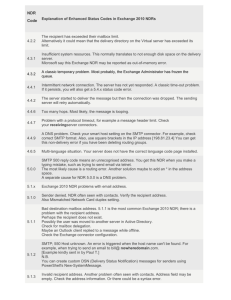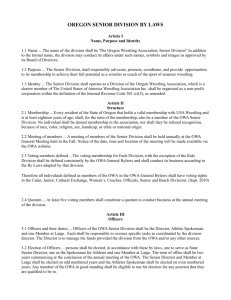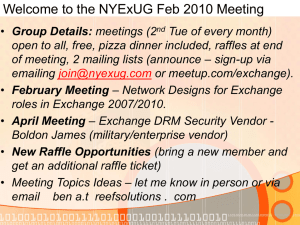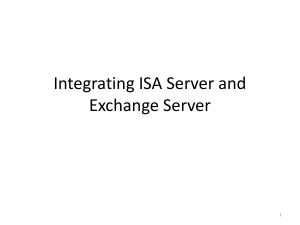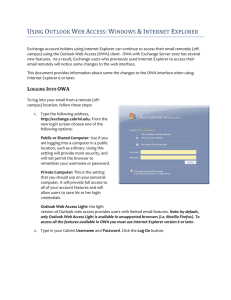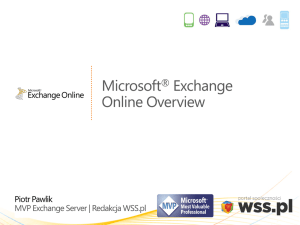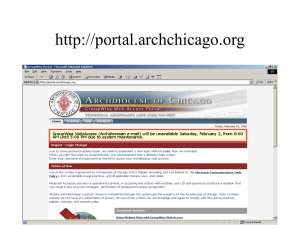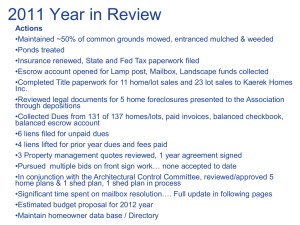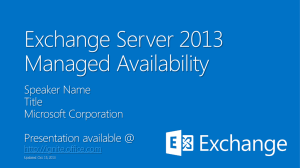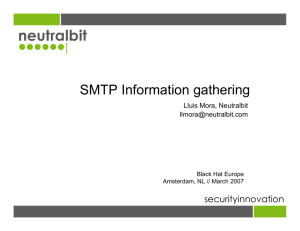Exchange Server 2013 Architecture, Part 2
advertisement
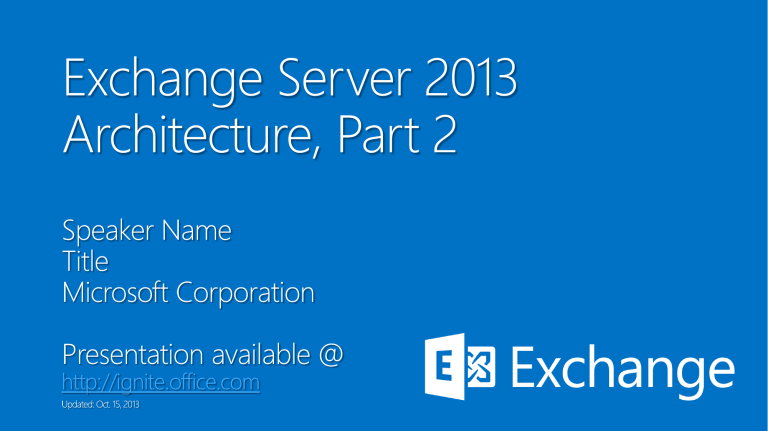
http://ignite.office.com Part 1 Evolution of Server Roles Client Access Server Mailbox Server 7 External SMTP External SMTP Front End Transport Pipeline SMTP Receive SMTP Send Protocol Agents Mailbox Selector SMTP from Mailbox Transport 8 SMTP to Mailbox Transport 9 10 11 Microsoft Exchange Transport Microsoft Exchange Mailbox Transport Delivery SMTP SMTP Transport Pipeline SMTP Receive Delivery Queue Protocol Agents SMTP Send Categorizer Pickup/Replay Submission Queue Routing Agents Delivery Agents for other protocols Delivery Queue SMTP from Mailbox Transport Delivery SMTP to Mailbox Transport Submission SMTP from Transport service SMTP to Transport service Mailbox Transport Pipeline SMTP Receive SMTP Send Hub Selector (Router) Store Driver Deliver Mailbox Deliver Agents Store Driver Submit Mailbox Transport Delivery MAPI Mailbox Assistants Mailbox Transport Submission MAPI Mailbox Submit Agents 19 20 21 22 Type of Monitoring Exchange 2010 Service not running Health manifest event rule Performance counter Health manifest counter rule Exchange events Health manifest event rule Non-Exchange events Health manifest event rule Scripts, cmdlets Health manifest script rule Test cmdlets Test Cmdlets Bring experience from the service to the enterprise Monitor end user experience Restore end user experience with recovery actions User Focused If you can’t measure it, you cannot manage it Availability Customer Touch Points Availability Can I access the service? Latency How is my experience? Errors Am I able to accomplish what I want? Latency Errors “Stuff breaks, but the experience does not” LB CAS-1 DAG MBX-1 OWA OWA DB1 DB1 DB2 DB1 DB1 DB2 DB1 DB2 MBX-2 CAS-2 OWA MBX-3 OWA —OWA send —OWA failure —OWA fast recovery —OWA verified as healthy —OWA send —OWA failure —OWA fast recovery —Failover server’s databases —OWA verified as healthy —Server becomes “good” failover target (again) http://aka.ms/Ex2013Docs http://aka.ms/EHLO
